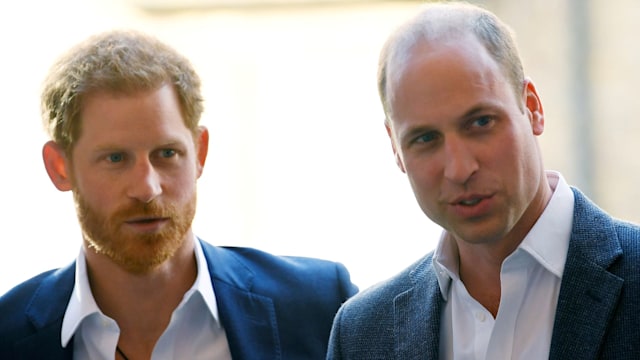The royal family will no doubt be in shock this week following King Charles' cancer diagnosis, discovered during a recent hospital procedure for benign prostate enlargement.
The King has started a schedule of regular treatments for his condition and postponed his public-facing duties, with the palace stating. "Throughout this period, His Majesty will continue to undertake State business and official paperwork as usual."
Charles' eldest son Prince William is returning to royal duties this week after his wife Princess Kate's abdominal surgery, and his youngest son Prince Harry has arrived in London from Los Angeles to visit his father.
During this worrying time, dads William and Harry along with their respective wives Kate and Meghan, may have needed to explain the King's health problems to their children - and finding out that their grandfather is seriously unwell could be tough to understand and process.
HELLO! spoke to Child Psychotherapist and Behaviour Change Therapist Alicia Eaton, also author of First Aid for your Child’s Mind, for her advice on talking to children about cancer within the family.
Prince William and Princess Kate are parents to George, age 10, Charlotte, eight, and Louis, five. How should the royal broach the subject with them?
Alicia suggests: "Both William and Kate should be involved in telling the children the news, choosing a quiet comfortable place where you can have a private conversation with interruptions. With children of varying ages, it’s sometimes better to tell older ones first and enlist their help in telling and supporting younger siblings."
Prince Harry and his wife Meghan share son Archie, four, and daughter Lilibet, two – are they too young to know that a grandparent is unwell?
"It’s important to be honest even with young children, and it will be hard for Harry to keep this a secret from his own children, so better that he tells Archie in a way that’s mindful of his emotional capacity," says Alicia.
"He may not be able to absorb all the details in this initial conversation and there will be time to give more details in bite-sized chunks."
Alicia tells us that it's best to avoid using too much medical jargon and to try and tailor your explanation so it's age appropriate. "Simple metaphors and analogies can be really useful to explain the concept of cancer," she advises.
"For example, you might compare cancer cells to unhealthy cells that need special treatment or ‘magic medicine’ to get better.
"Be prepared to answer questions. If you don’t know the answer, be honest about it. You could say 'that’s a good question. I’m not sure of the answer to that one – so thanks for asking. I’ll find out for you and let you know'."
What can parents do to help their children if they are worried about the family member?
Alicia explains: "Depending on the child’s age, consider involving them in small caregiving activities such as making get well cards or creating a get-well video message. This can help them to feel connected and show that they can contribute to the grandparent’s wellbeing in meaningful ways.
"Monitor your child’s emotional wellbeing. If you notice changes in behaviour such as unexplained angry outbursts, nightmares, bedwetting or eating issues, monitor the situation and seek professional advice."
